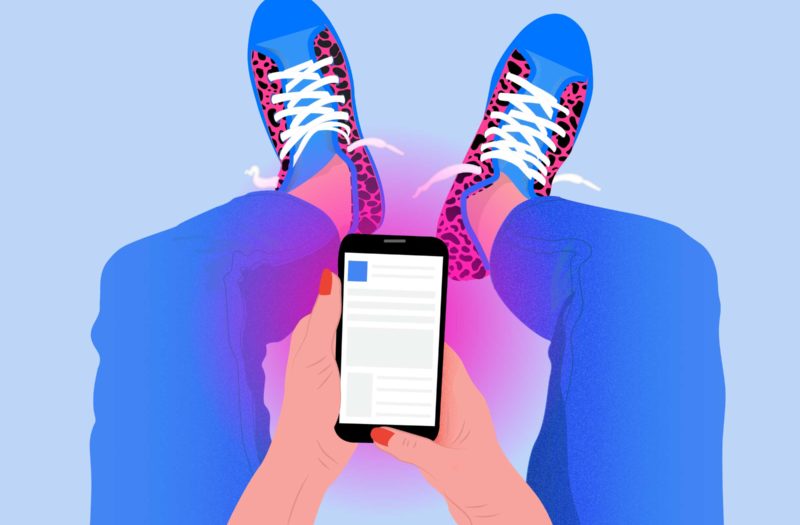Learn more about our FREE COVID-19 Patient Support Program for chronic illness patients and their loved ones.
The past few weeks have been a panic-inducing, shadowy time, to say the least. The coronavirus (also known as COVIV-19) has become a global issue, threatening health, economy, transportation, and so much more. It’s all felt a bit slow-motion, to me, watching this pandemic play out. We’re all checking the news day by day, or hour by hour (I know I am), seeing an infection jump from country to country, state to state, town to town. I can sense a collective, ominous bated breath. Everyone is on the edge of their seats.
Throughout the development of this crisis, many people have been at least a little guilty of thinking, “It’s not my problem.”
I have ankylosing spondylitis (AS), a type of inflammatory arthritis that places me in the “underlying health condition” category.
For those of us with compromised immune systems, the issue has been even heavier. Murkier. More real. This is our problem. We’re all wondering: Will I get it? Is it in my community? If I do, can my body fight it? Should I quit my immunosuppressants? Should I stock my house and stop going into work?
Because immunocompromised folks — along with elderly people or people with heart, lung, or other chronic issues — are at greater risk for coronavirus complications (yes, life-threatening ones) than people in the general population, the fear is acute and intense and not just about other people.
But that sort of messaging is the issue, too. With tweets and articles suggesting only elderly or sick people will endure serious consequences, those of us with “underlying health conditions” are feeling tossed aside. And how can we not? We’re in the “exception” category. We’re the people they’re flippantly talking about when they say, “Don’t worry, it won’t be us — it’ll be them.”
Jeez, ok.
When a Public Health Crisis Unfolds Online
Watching a global pandemic play out online is one of the main issues. That’s how most of us stay connected and informed. We see those “well-meaning” Facebook friends who downplay the worry, suggesting we’re all too dumb to think for ourselves, or, worse, that we’re cogs in a governmental conspiracy machine.
And we read tweets like, “Stop worrying, we’re probably all young and healthy here,” with a long sigh.
Because there’s so much antagonizing, downplaying, and political chaos going around, I’ve decided to disengage as much as possible. Trying to convince That Dude From High School that yes, COVID-19 is a threat that we should all care about and take seriously is just not going to help my sense of well-being or my mental health, so I’ve stopped spending my time trying to change their mind.
Feeling Empowered by Support
What I have spent my energy doing is supporting other folks with chronic illness and spreading helpful messages to the general population about how they can also support family members or friends who might be more at risk.
I’ve been talking to a lot of AS patients (and other chronic illness patients) in Facebook groups, sharing notes from doctors and rheumatologists, offering advice when asked for it, and lending general emotional support to folks who feel invisible and frightened.
When half the world is calling us “crazy” for worrying “way too much,” the least we can do is show up for another to say that we’re not being overdramatic and that our feelings are valid.
Some of these support group folks are living abroad — many in Northern Italy or China, for example — as foreign nationals or as visitors or as citizens. (Yes, people all over the world are immunocompromised.) Many are in the epicenter of quarantine and crisis, keeping off the streets, lining up to buy food in shops where families are limited to buying a set number of grocery items (yes, it’s that bad) so others can get their hands on food, too. Talk about dystopia.
But more than that, we’re offering pragmatic advice around stocking up for quarantine, handling medicine deliveries (biologics, for example, are often delivered), and keeping things clean (some AS patients have told me that their local stores have sold out of alcohol wipes, a necessity before giving yourself medication injections). These are real-life consequences.
When we’re listening to one another and talking through hard moments, I think it brings our communities together. It’s almost as if — shocker! — the Internet is making way for something good and kind during a time of panic and chaos and misinformation and fear-mongering.
More than the fact that we’re showing up for each other in a lot of ways, I think the coronavirus is making us re-assess the relationship we have with our own bodies. From adopting gallows humor (I definitely do) just to get through the darkness, to stepping up our own self-care routines, seeing the world go up in proverbial flames can be the push we need.
Maybe it takes a crisis to inspire us to be better, be stronger, be more alert. If it’s about control, that’s ok. If it’s about self-care, that’s ok. Whatever it is, we need to use the coronavirus situation for self-empowerment. We’ve lived our entire lives fearing the flu, pneumonia, or whatever thing will set our bodies into a spiral. We have to stay strong now.
Get Free Coronavirus Support for Chronic Illness Patients
Join the Global Healthy Living Foundation’s free COVID-19 Support Program for chronic illness patients and their families. We will be providing updated information, community support, and other resources tailored specifically to your health and safety. Join now.






